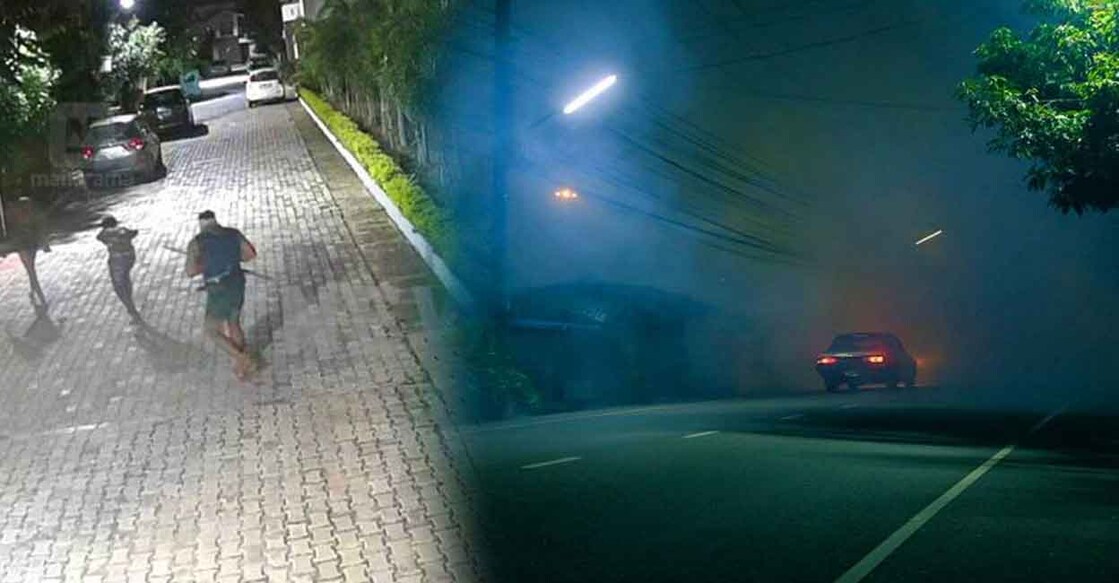Dreaded 'Kuruva' gang from Tamil Nadu likely targeting border hamlets in Palakkad

Mail This Article
Palakkad: Here in the border areas of this Kerala district adjacent to Tamil Nadu, a dreaded robbery gang called the Kuruvas has been giving villagers sleepless nights of late. Recently, some members descended on villages like Madukkara and Chavadi areas of Coimbatore, close to Walayar in Kerala.
The Tamil Nadu police have confirmed that the CCTV footage has captured their movements in the area. Palakkad district police chief R. Vishwanathan ruled out that the Kuruvas had crossed over to Kerala. He claimed that the security had been beefed up in areas bordering Tamil Nadu.
The gang's name Kuruva' has nothing to do with any tribal or caste communities. The lethality by which they commit theft earned them such an epithet.
The Tamil Nadu Police (Intelligence) Department named them after Kuruva, considering their might as looters, who would even commit murders while on the prowl in an area for robbery.
They have their base in the infamous 'Thiruttu Gramam' (Village of Thieves) which had hit national and international headlines many times as a land of thieves, having a set of independent rules, with a village chieftain (moopan) calling the shots.
Years back, many prominent Kuruva group members, including Paruthiveeran, Krishnan and Veeran, hailing from Kallakurichi in Vizhipuram in Tamil Nadu, were arrested by the Palakkad police.
It was in 2008 that eight people were taken to custody from Ambalapara in Ottapalam. In 2010, another gang was caught from Makkaraparamba in Malappuram district. They were later released on bail.
There were almost hundreds of cases registered against them in police stations across Kerala. Under Cherpulassery, Ottapalam and Sreekrishnapuram police station limits, almost 50 cases are pending against them. But ironically, the police are even now clueless about their whereabouts.
Robbery specialists
Kuruva gang members are well-versed in martial arts. Usually, they murder people before committing robbery. They would go to any extent to steal gold and money. Youths aged 19 years to 59 years are part of this group. They usually venture out for robbery with traditional weapons such as swords, fighting knives, daggers, spears and sickles.
Hundreds of such gang members are still active in 'Thiruttu' villages in districts like Thiruchirappally in Tamil Nadu. Either posing as scrap dealers or those who do 'ammi kothu' (chiselling of grinding stones), they do a recce of the area first, which is to be followed by a robbery attempt by an armed gang in the night. Such gangs are not even bothered about committing a gruesome murder in the course of committing robbery.
Thiruttu Gramam
In 'Thiruttu Gramam', robbery has acquired the status of being a hereditary job. Specialized training is given to those who venture out for robbery. Interestingly, thieves have the backing of the entire village.
Each gang steps out of the village for a crime after taking blessings from the 'moopan'. They also do special poojas ahead of committing the crime. Even if any member of the gang is caught by the police, his family doesn't have to lead a hungry life as the entire village led by the moopan takes care of the family.
If a member of the robbery gang is caught by the police, the message will be immediately passed on to the Moopan by others. 'Moopan', in turn, will take the necessary steps to give him the required legal support. Keeping such eventualities in mind, a general rule followed by the villagers is that everyone in the profession should hand over a percentage of their proceeds from every crime to 'moopan'.
He uses the seed money in times of giving help to those arrested.
There is also a rule that if a thief from a family is put behind bars, another person from the same family should come forward and take up the profession.

